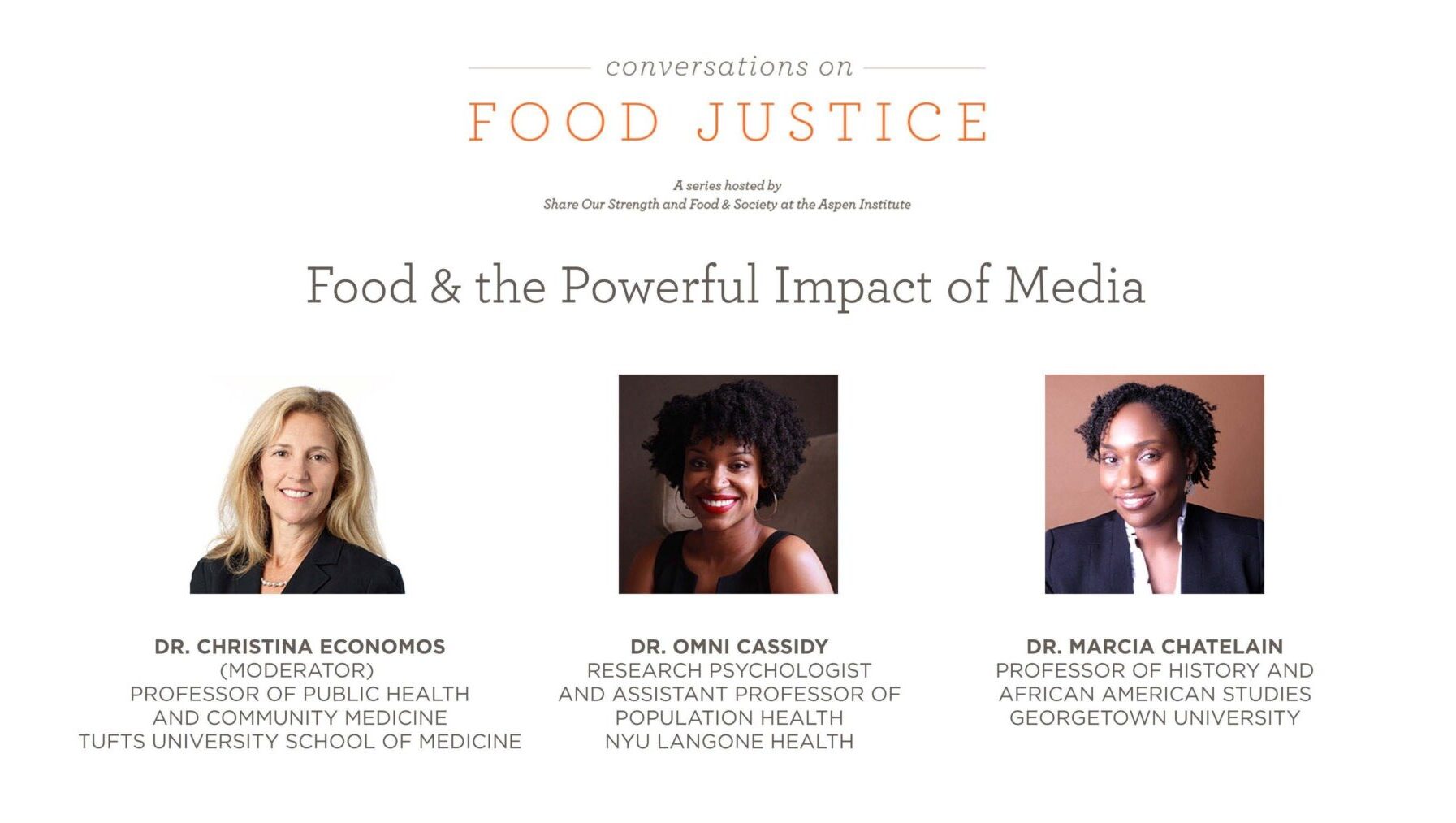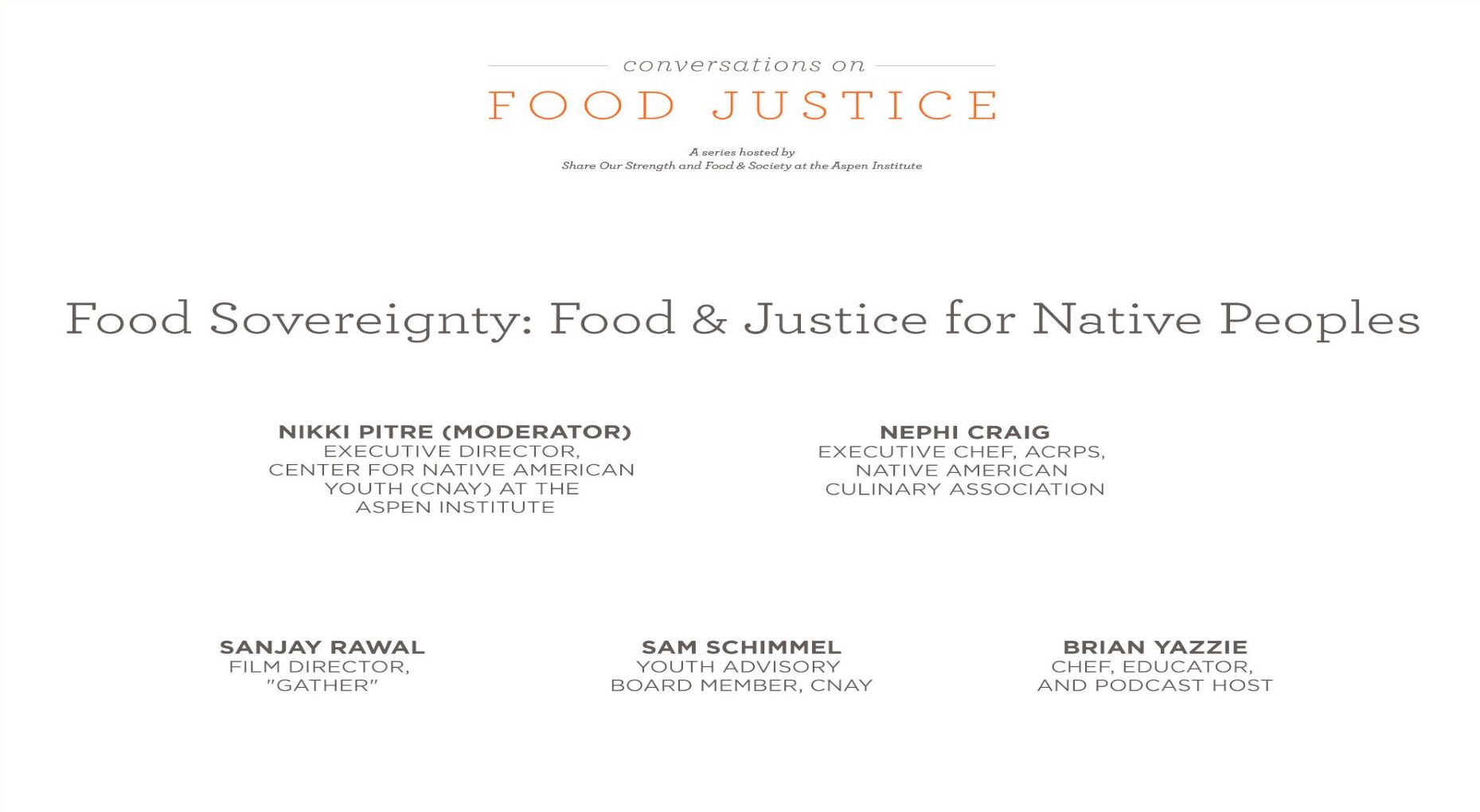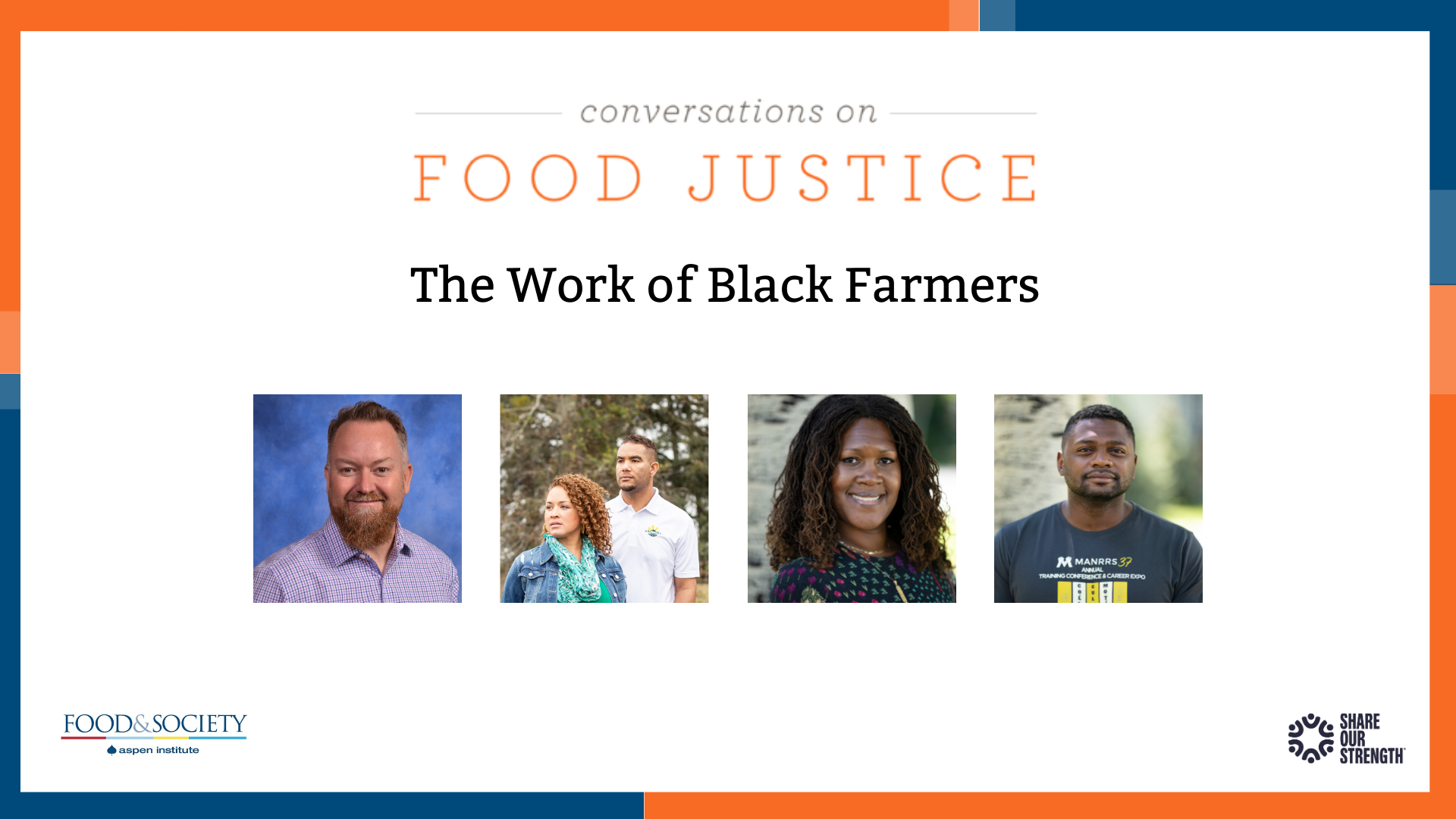Water is essential to our health and survival—both for our nourishment, and for our food to grow—and the ways we access water have the power to shape our communities. While water was once viewed as a public good, generations of segregation and racial discrimination, pollution, and disinvestment in water infrastructure projects have contributed to a water access and affordability crisis that is drawn along racial lines.
In this session, we’ll examine how the construction of U.S. urban water systems and the development of water policy have been rooted in racial discrimination, depriving communities of color of access to essential water services and contributing to a water affordability crisis that threatens the health and safety of millions. We’ll also explore how communities are fighting back by rethinking public water infrastructure and sharing stories about the ways that water connects us all.
Conversations on Food Justice is a collaboration between Food & Society at the Aspen Institute and Share Our Strength.
Our panelists include:
Mami Hara is CEO of the US Water Alliance, a national nonprofit organization advancing policies and programs that build a sustainable water future for all. Mami brings over three decades of experience in land and water management, fostering sustainable and equitable policies and practices through cultivating leaders, partnerships, and workforce, and community centered participation, planning, and management. In her public sector and private practice roles, Mami has guided the planning and implementation of award-winning green infrastructure, sustainability, utility, and community investment programs across the nation. Mami leads the Alliance’s efforts as a National Environmental Finance Center.
Professor Cherita Harrell earned a Master of Fine Arts in Creative Writing at Rutgers University-Camden and a Master of Science in Education at Walden University. She is a doctoral candidate at Walden University, and her research interests include a focus on critical literacy, racial literacy, and Black feminism. Her research examines how critical literacy, racial literacy, and critical theory may help to create spaces that allow for the exploration of students’ lived experiences through forms of expression, such as oral stories, narratives, visual media, and other literary contributions. She is an Associate Artist with the Quilting Water project, an international public art initiative that collects local stories and histories about water from around the world.
Dr. Danielle Land is a postdoctoral research associate in the C.S. Mott Department of Public Health at Michigan State University. She earned a PhD in Civil and Environmental Engineering in the Sustainable Water Development program at the University of Iowa. Her research focuses on lead in drinking water, particularly at the intersection of engineering, public health, policy, and environmental justice. She is a cofounder of the Get the Lead Out (GTLO) of Iowans’ drinking water program, an ongoing statewide drinking water testing program to let at risk Iowans find out how much lead is in their water, free of charge. Recently, her work has been focused on developing data-driven methods to identify homes most at risk of experiencing water-lead contamination before a water sample comes back positive for lead. Currently, Dr. Land is working on a project titled “Healthy Homes Need Healthy Water: Toward a Lead in Water Risk Assessment Tool” funded by the U.S. Department of Housing and Urban Development. The goal of her work is to improve primary prevention practices used to identify and target those most in danger of being exposed to lead-contaminated water before they ever drink it – because healthy children need healthy water.
Moderated by
Richard (Dick) Sadler, PhD, MPH, is an associate professor in the Department of Public Health at Michigan State University. He is an urban/medical geographer with expertise in environmental science, GIS, food systems planning, and land use policy in legacy cities. His research interests include integrating urban planning and public health topics related to neighborhood/built environmental effects on health. Recently, this has revolved around uncovering elements of structural racism in the housing environment and determinants of urban development that exacerbate racial and socioeconomic inequality. Methodologically, Dr. Sadler combines spatial analysis and community-based participatory research approaches to address challenges in the urban environment. While his research focus remains on his hometown of Flint, Michigan, he aims to use the lessons learned from this work to bring a unique lens to existing collaborations in Baltimore, Pittsburgh, Milwaukee, Grand Rapids, Ontario, and beyond. Some of his service contributions include serving on the boards of Edible Flint, the Flint Fresh Food Hub, the Flint & Genesee Food Policy Council, and the Flint Mission Zone of the United Methodist Church (which runs the South Flint Soup Kitchen). Throughout his work, the overarching goal is to strengthen the understanding between the built environment and health behaviors/outcomes with the objective of shaping land use policy to build healthier cities.



